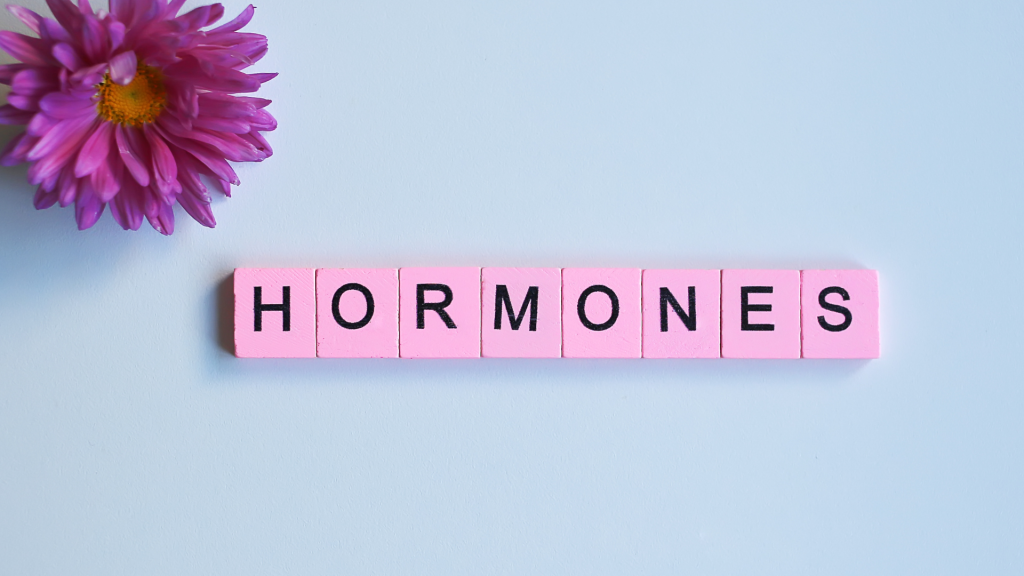Introduction: Why Hormones Matter
Hormones are the body’s chemical messengers, regulating everything from mood and metabolism to reproductive health and energy levels. For women, hormonal balance is particularly crucial, as fluctuations can impact physical health, emotional well-being, and even long-term disease risk.
From puberty to menopause, women experience significant hormonal shifts that influence their daily lives. Understanding these changes—and how to support hormonal health—can lead to better energy, stable moods, and overall vitality.
Key Hormones in Women’s Health
1. Estrogen— The Multitasker
Estrogen is involved in many functions. It helps regulate periods, supports pregnancy, maintains bone density, and promotes skin health. Mood is also influenced by estrogen, with low levels linked to anxiety and depression.
Signs of imbalance:
- Periods may become irregular or heavy.
- Hot flashes can occur, especially in perimenopause.
- Weight may increase around hips and thighs.
- Libido can be reduced.
2. Progesterone— The Calmer
Known as the pregnancy hormone, progesterone balances estrogen. It supports sleep, calms the nervous system, and aids mood stability.
When levels are low:
- Sleep issues like insomnia are common.
- Anxiety and irritability may increase.
- Menstrual cycles may become irregular.
- Pregnancy may be harder to maintain.
3. Testosterone— More Than a Male Hormone
Although present in smaller amounts, testosterone is essential. It supports muscle strength, sex drive, energy, and motivation.
Imbalance signs:
- Low levels may cause fatigue, low libido, or muscle loss.
- High levels may lead to acne, facial hair, or mood swings.
4. Thyroid Hormones— Metabolism Managers
T3 and T4 are key for metabolism, energy, and body temperature. They also impact skin, hair, and nails.
Common disorders:
- Hypothyroidism: Weight gain, tiredness, and low mood may occur.
- Hyperthyroidism: Weight may drop, with anxiety and a fast heartbeat observed.
5. Cortisol— The Stress Responder
Cortisol increases with chronic stress. When elevated, sleep is disturbed, fat may build around the belly, and immunity can weaken.
High cortisol signs:
- Weight loss becomes difficult.
- Feeling tired yet wired is common.
- Sugar and carb cravings increase.

How Hormonal Imbalances Affect Women’s Health
1. Menstrual Irregularities & PMS
Estrogen dominance not only causes heavy, painful periods but also disrupts cycle regularity. Additionally, low progesterone often leads to severe PMS, including mood swings and bloating.
2. Fertility Challenges
PCOS (Polycystic Ovary Syndrome) is primarily linked to insulin resistance, which often coincides with high testosterone. Meanwhile, low progesterone not only affects ovulation but also makes it difficult to sustain pregnancy.
3. Weight Gain & Metabolic Issues
Thyroid imbalances significantly slow metabolism, while high cortisol promotes fat storage—particularly around the abdomen. Consequently, these hormonal disruptions make weight management challenging.
4. Mood Disorders & Mental Health
Estrogen fluctuations are closely tied to anxiety and depression. Similarly, low serotonin—often linked to estrogen drops—further affects mood stability.
5. Menopause & Perimenopause Symptoms
Declining estrogen directly causes hot flashes, night sweats, and vaginal dryness. At the same time, lower progesterone contributes to sleep disturbances as well as irritability.
How to Support Hormonal Balance Naturally
1. Nutrition for Hormone Health
- Healthy fats (avocados, olive oil, salmon) not only support hormone production but also promote cellular health.
- Fiber-rich foods (flaxseeds, leafy greens) help detox excess estrogen while improving digestion. Protein (eggs, lean meats, legumes) stabilizes blood sugar and cortisol levels.
- Cruciferous vegetables (broccoli, Brussels sprouts) aid estrogen metabolism and support liver function.
Avoid:
- Processed sugars, which spike insulin and cortisol.
- Excessive caffeine, since it increases cortisol production.
- Alcohol, as it disrupts liver detoxification of hormones.
2. Lifestyle Adjustments
- Prioritize sleep (7-9 hours nightly) to regulate cortisol and growth hormones.
- Manage stress (yoga, meditation, deep breathing) for lower cortisol levels.
- Strength training not only boosts testosterone but also enhances metabolism.

3. Supplements for Hormonal Support
- Magnesium helps reduce PMS while supporting better sleep.
- Omega-3s lower inflammation and support brain health.
- Vitamin D is crucial for thyroid and immune function.
- Adaptogens (Ashwagandha, Rhodiola) help balance cortisol and improve stress resilience.
4. When to See a Doctor
If you experience:
- Severe fatigue or unexplained weight changes
- Irregular periods or fertility struggles
- Persistent mood swings or depression
- Extreme menopausal symptoms
A healthcare provider can check hormone levels and recommend treatments like bioidentical hormones, thyroid medication, or lifestyle interventions.
Final Thoughts: Empowering Hormonal Health
Hormones quietly shape your daily life—from energy to emotions. For women, balance is key to feeling your best. Small, consistent choices (nutrient-rich foods, stress management, quality sleep) make a big difference. Listen to your body, and don’t hesitate to seek help when needed. With the right care, you can thrive through every life stage. Your hormonal health matters—nurture it.
Your well-being starts from within. 💫




